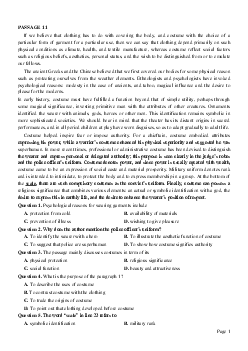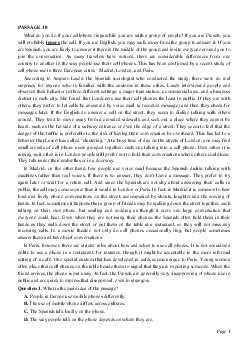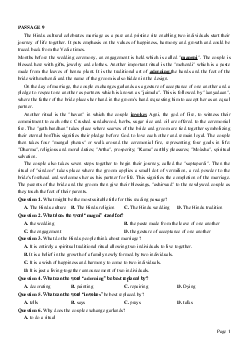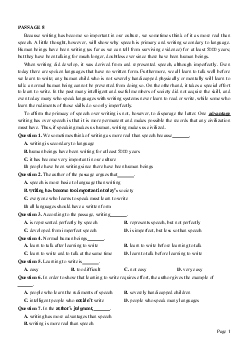

Preview text:
PASSAGE 15
If you want to turn your hobbies into jobs, consider the following experts’ suggestions. If you are a
helpful person, you can teach others to do what you love. Teach piano lesson, offer cooking classes, or
teach another languages, if those are your passions. You can do this by teaching through a college or
continuing education program, by creating your own classes, or by creating your own webinars or tele-
seminar series online, Collamer says.
If you are not interested in teaching, appraise, repair or fix items related to what you love. Most hobbies
have “stuff” connected to them, and sometimes that stuff needs to be fixed by a skilled and
knowledgeable person. “You could fix computers, appraise collectibles, repair bicycles, source missing
parts for highly unusual items, and so on,” Collamer says.
“The next time you find yourself confused as to how to generate income from your hobbies, search out
the most successful entrepreneurs in your area of interest and study their business models and revenue
stream,” Collamer suggests. “Ask yourself: Is their income coming from consulting services, videos,
accessories? What is their pricing strategy?” In doing this, you’ll discover proven models for monetizing
your hobbies, as well as helpful information about how to price your own services and products.
Mufson, who has interests outside of career coaching, says she managed to turn a hobby into a lucrative
part-time gig. “I personally turned my hobby of creating gemstone jewelry into a side-line business,” she
explains. “Jewelry making is an expensive hobby and early on I decided to make it pay for itself. Since
then I have developed two online stores and a relationship with a jewelry gallery that sells most of my work.”
(Adapted from: http://www.forbes.com/sites/jacquelynsmith/2013/10/07/six-tips-for-turning-your-hobby- into-your-job/#44283c363248)
Question 1. What does the phrase “do this” in the first paragraph refer to? A. Have your passion
B. Create your own webinars
C. Offer cooking classes
D. Teach others your hobby
Question 2. It can be infer from the passage that internet-based lessons are often .
A. done by using telephone or smart phone
B. delivered by college or university professors
C. attended by people far away from their bases D. regarded as part of higher education program
Question 3. According to the passage, you can earn money as a in buying and selling rare things. A. salesperson B. middleman C. judge D. mechanic
Question 4. Collamer suggests
A. getting a university degree in business
B. working for the most popular employer
C. interviewing the richest business people
D. analyzing successful people’s methods.
Question 5. What is Mufson most likely to make? A. Clothes B. Shoes C. Handbags D. Earrings
Question 6. Where are sell most of Mufson’s products sold? A. At a gallery B. In the market C. At her shops D. Via the Internet
Question 7. What is the best title for the passage?
A. Methods of designing and selling jewelry
B. Tips for turning your interests into careers Page 1
C. Experts’ advice on choosing the best jobs
D. Pros and cons of running a private business ĐÁP ÁN 1-D 2-C 3-B 4-D 5-D 6-A 7-B Page 2




